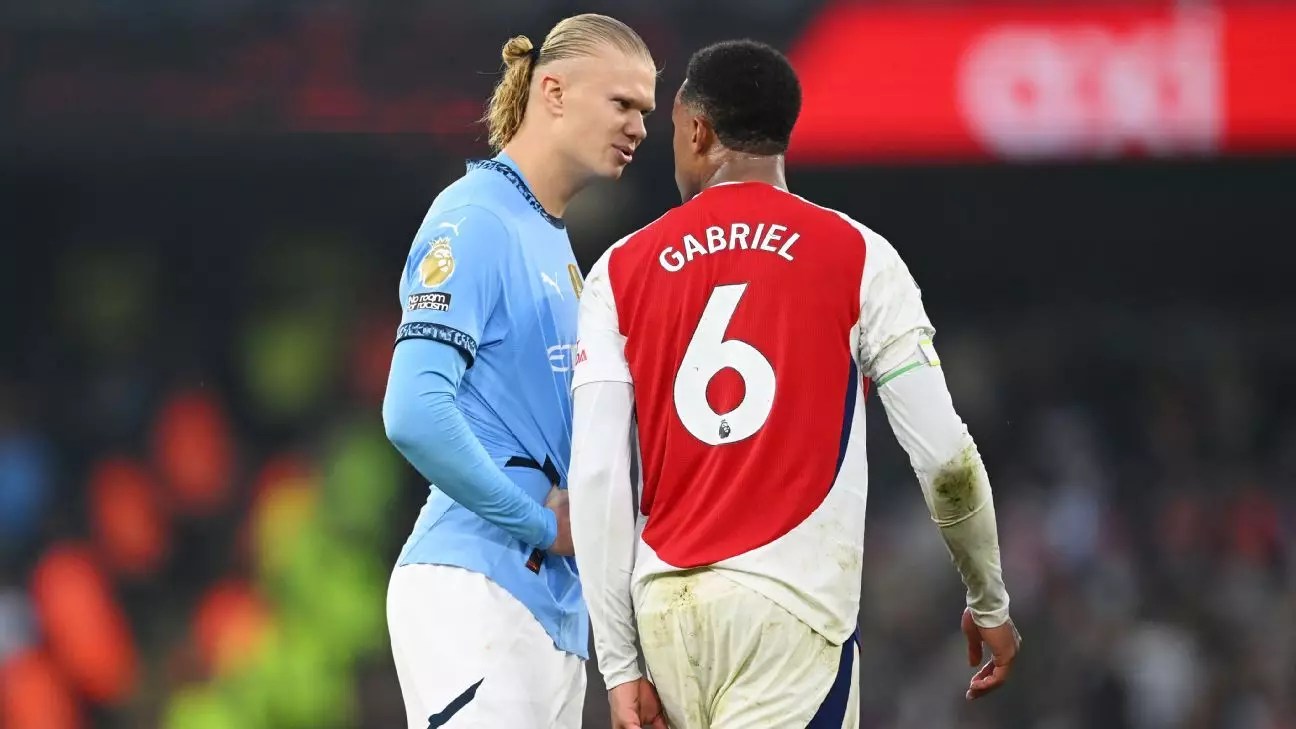In a dramatic match that saw Manchester City level against Arsenal in stoppage time, a contentious incident involving Erling Haaland emerged post-game. After John Stones’ equaliser at the Etihad Stadium, Haaland was seen hurling the ball at Arsenal defender Gabriel Magalhães’ head. This physical confrontation, while unsettling, escaped the immediate attention of match referee Michael Oliver. However, it was caught on the radar of VAR official John Brooks, who opted not to categorize Haaland’s action as violent conduct. According to ESPN, the FA has since decided that no further punitive measures will be pursued against the Norwegian striker. This raises questions about the criteria used by officials considering the emotional intensity of the match.
The backdrop to this fracas was steeped in controversy, primarily spurred by perceived time-wasting tactics employed by Arsenal, particularly after Leandro Trossard’s dismissal reduced them to ten players. Following the final whistle, tensions flared not just between the players but also between the managerial staff, highlighting the fraught nature of the match. City defender Manuel Akanji voiced his frustration, emphasizing that Arsenal players frequently exaggerated physical contact to halt the game’s momentum. His comments suggest a growing frustration among players regarding the effectiveness of officiating in controlling the tempo of the game—a sentiment likely shared by many in the footballing community.
Haaland’s post-match interaction with Arsenal’s manager Mikel Arteta and striker Gabriel Jesus further illustrated the charged atmosphere following the final whistle. As he admonished Arteta to “stay humble,” there was an underlying tone of rivalry that resonates deeply in high-stakes matches. His derogatory remarks towards Gabriel Jesus, calling him a “clown,” reflected the emotionally charged environment and the fierce competition between the players. This exchange not only escalates the rivalry between the clubs but also highlights the personal nature of such high-octane encounters, where emotions can run rampant and sportsmanship often takes a backseat.
With tensions simmering after this encounter, Manchester City’s focus quickly shifts towards their upcoming Carabao Cup clash against Watford. Scheduled just 48 hours after their nail-biting draw, coach Pep Guardiola finds himself wrestling with selection conundrums. With key player Kevin De Bruyne nursing a thigh injury and unlikely to feature, Guardiola may need to rotate his squad entirely. This situation reflects the inherent challenges of a packed football schedule where maintaining player fitness and squad morale becomes increasingly complex. However, Guardiola remains optimistic about De Bruyne’s recovery, hinting that the injury might not be long-term.
The match between Manchester City and Arsenal serves as a microcosm of modern football’s emotional landscape, marked by moments of intensity, heated exchanges, and ongoing scrutiny. As players like Haaland navigate this charged environment, it becomes increasingly evident that every action—both on and off the pitch—will be closely monitored and interpreted by fans, officials, and pundits alike.


Leave a Reply